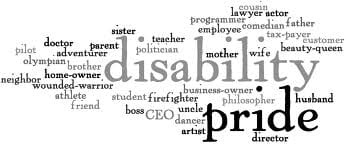
These past few weeks, we have focused on the broader struggles that people with disabilities face in America. We also looked into the American Education system and explored the many obstacles children with disabilities face within it. This was a much-needed topic to explore, yet I recognize the heaviness and feelings of despair that can follow after reading such a blog series. So, in order to provide some hope, as well as meaningful resources to those struggling with these issues, I have compiled a list of local non-profit organizations that focus on providing services to children (and adults) with disabilities and their families. These organizations provide various services, including places to destress and socialize, and range from serving individuals with both physical disabilities and invisible disabilities. Please take a few minutes to look through this blog and find the resources that you or someone you know might benefit from.
Intellectual Disabilities and Neurodivergence
Oftentimes, people with invisible disabilities can be overlooked by their teachers, peers, and community members because their disability is not “obvious”. Many people with intellectual or learning disabilities struggle to have their needs met because people are either dismissive of them or completely refuse their lived experiences altogether. Navigating through life with an invisible disability can be difficult, especially for younger children, but there are resources in the local Birmingham area that can help children with invisible disabilities as well as their caregivers better prepare for their future. Some of the resources below address developmental needs, and workplace readiness, and offer a sense of community for both children and adults with intellectual and learning disabilities, while others focus on people with a range of disabilities of all ages.
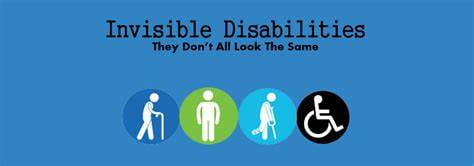
Mitchell’s Place
Located in two locations, (Southside, and Birmingham), Mitchell’s Place is a non-profit organization that works with children who may be on the autism spectrum. They provide research-based resources for children with disabilities and their family members. For parents and caregivers of children with disabilities, Mitchell’s Place provides education and resources on how to provide the best care for those under their care. They also provide many resources for children, such as helping them develop social skills, helping with feeding, speech, and occupational therapy, providing both psychological and psychiatric resources, and also early learning opportunities for preschool-aged children. Established in 2005 by parents who were unable to find resources for their child with autism, Mitchell’s Place has served over 2500 families and prides itself on being a supporter of diversity, equity, and inclusion. For those interested, their Southside location can be found at 2305 Arlington Rd. Birmingham AL, 35204, and the other one is located at 4778 Overton Rd. Birmingham, AL 35210.
The Arc of Central Alabama
The Arc of Central Alabama (ACA) is another great resource for people of all ages with intellectual and learning disabilities (IDD). Supporting individuals throughout Jefferson County and Blount County, the ACA is Alabama’s largest provider of disability services and prides itself on being the only non-reject program in the state. This means that as long as referrals follow the proper channel, no individual is rejected from being part of the program. A local chapter of The Arc of Alabama and the larger Arc of the United States, the ACA also serves as a crisis center for individuals with IDD, providing a safe space for individuals and their families in times of need. The ACA caters to individuals of all ages, and its various programs focus on these different age groups. Their early intervention programs provide support for infants and toddlers with IDD, along with education and resources for their caretakers and families. Their employment support program trains high school-age students with IDD to help them find better employment opportunities when they are ready to enter the job market. The residential programs focus on providing a safe space for adults of all ages, and a newer adolescent unit has also been created to address the growing needs within the Central Alabama region. Finally, their Community Day programs cater to adults of all ages, providing them with opportunities to socialize and engage with others within their community and develop daily living skills, from balancing their finances to helping with hygienic needs. These programs are tailored to each individual based on their needs, necessities, abilities, and interests. In addition to all these programs, the ACA also empowers its members by providing them with training in advocacy work, focusing on educating the public, following state and federal policies (and funding), and providing them avenues to advocate for their needs and rights. With four locations across Central Alabama – Birmingham, Blountsville, Cleveland, and Irondale – and lifelong opportunities for care and support, the ACA is an accessible and reliable resource for many across this region.
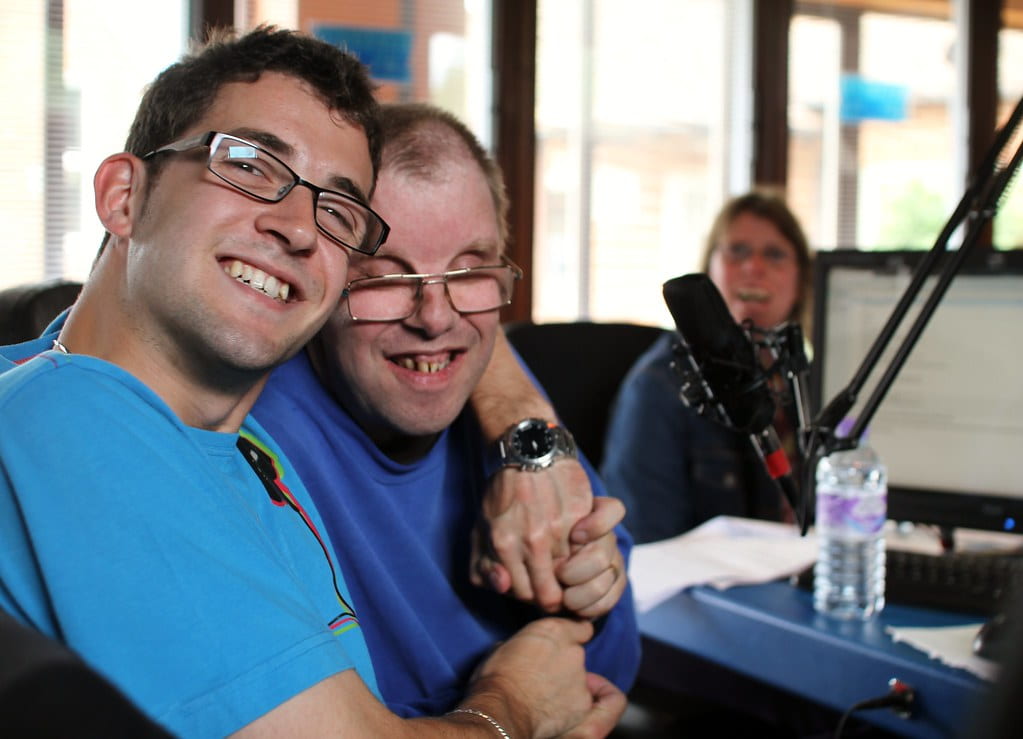
The HANDS program/ the Alabama Autism Assistance Program (AAAP)
Another resource for children with neurodivergent disabilities is the HANDS program, or the Alabama Autism Assistance Program (AAAP). This non-profit organization provides many services, including therapy (both clinical and home sessions), school services, summer programs for early childhood development, and also seasonal services. Their therapy services are individually catered based on assessments of the child’s needs, in which they provide two-hour, one on one sessions by licensed therapists that track the child’s progress to provide the best resources. Their school services provide additional support during the school year in both academics and behavioral areas. Their summer programs provide a structured environment for children to socialize, learn and play with peers and their seasonal services offer support for children interested in sports. For children with disabilities, socializing with peers can be stressful, so having a safe environment to be able to socialize and make friends can help them become more confident individuals in the future.
Alabama Easterseals Society
With over 50 facilities nationwide and 12 facilities throughout Alabama, the Easterseals Society was founded in 1934 to raise funds to provide services to people with disabilities and advocate for their “right to live a normal life.” The organization challenges the narrative around disability as a burden and instead focuses on empowering individuals with disabilities with skills and resources. They have services for pediatric rehabilitation, which include speech therapy, feeding therapy, occupational therapy, and physical therapy. They provide services for workforce development, such as career classes which provide training for specific careers, and summer internships to prepare high schoolers for the job market. They also have recreational opportunities, with an emphasis on camping, which can be very therapeutic and great for your mental health. As with the ACA, the Easterseals also have an advocacy element, which spreads awareness about disability rights, supports the passage of legislation centered around disability rights, and provides the space to conduct solution-based workshops within their local communities. They provide additional assistance for elderly people with disabilities, veterans, and caregivers, with both resources and recreational opportunities. Some locations (such as the one in Tuscaloosa) even provide transportation services for those who are unable to drive themselves to work and other places.
Transportation Help
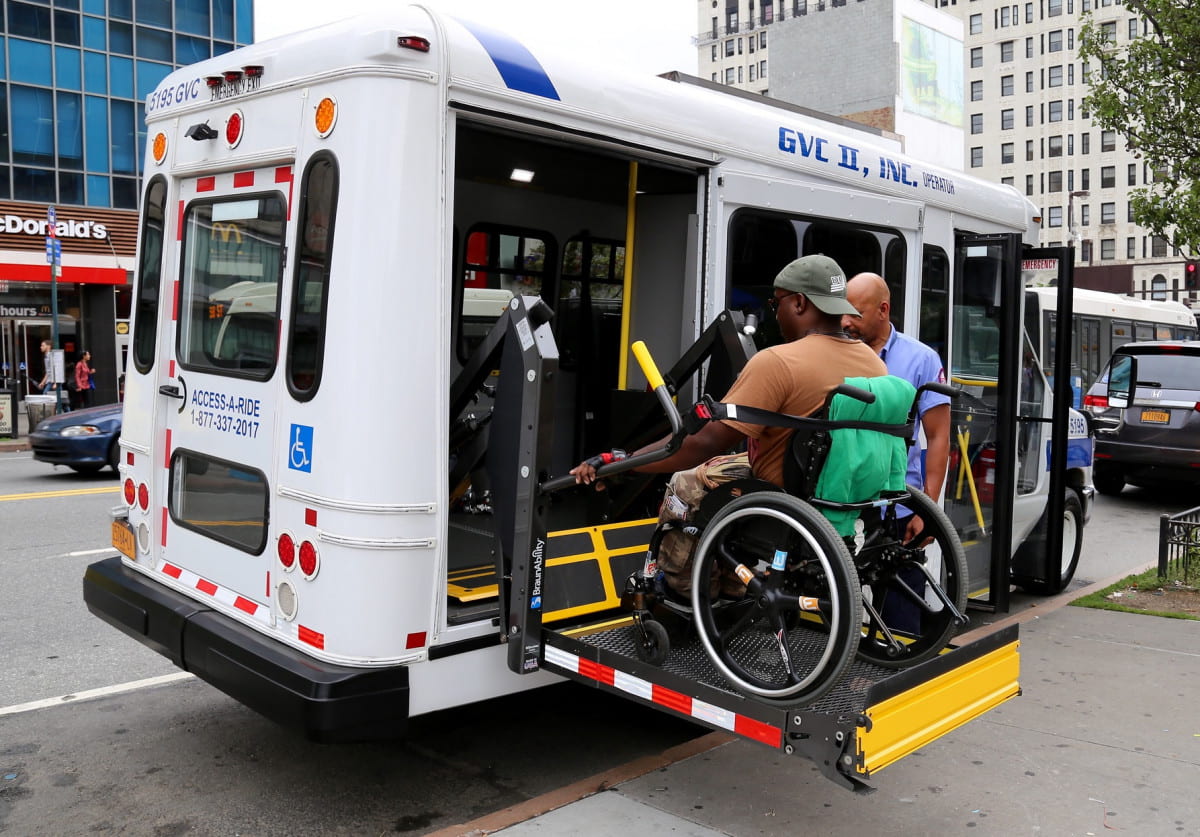
Of the many challenges that people with disabilities face, transportation is a key issue. Many people with disabilities who can drive require specially tailored vehicles to fit their needs, while others who are unable to drive have to depend on family members, friends, or community volunteers to help them get from one place to another. Due to the fact that many people with disabilities have to visit their healthcare professionals regularly, this can be especially challenging. ClasTrans, (which stands for Central Alabama’s Specialized Transit) serves people with disabilities within Jefferson and Shelby counties who require transportation to various places, including medical appointments, grocery stores, entertainment venues, and so much more. This service is available for those living in urban and rural areas, and they can plan their trips ahead of time to know exactly what they can expect for the day. ClasTrans drivers also provide riders with assistance during the ride, including boarding the vehicle and transferring into their seats. ClasTrans is available for elderly members and those who are able to verify their disability status. While the services are not for free, their rates are affordable, with one-way trips starting at $4. Regular riders can also purchase fare credits, which they can pay ahead of time to avoid carrying exact change on their person each time they use the service.
Therapeutic and Recreational Opportunities

Red Barn
An organization focused on incorporating Equine Assisted Services for low-income children with disabilities, Red Barn was founded in 2012 to serve the children in their local community. Equine Assisted Services (EAS) is a professional field of collaborative services that incorporate interaction with horses into therapy, learning, and development for children with disabilities. EAS has three areas of focus: Horsemanship, Therapy, and Learning. Horsemanship deals with activities such as learning how to ride a horse, taking care of the horses, and participating in other equine-related sports and activities. These services are conducted by specially trained individuals who are licensed to provide this training. The second focus of EAS, therapy, deals with counseling services, occupational therapy, physical therapy, psychotherapy, and speech-language pathology. All these therapy options are equine-based, incorporating interaction with horses and equine discipline within these sessions, which are led by licensed therapists. Finally, their third focus, learning, centers on equine-assisted learning in education (such as learning life skills, academic skills, and character development), organization (such as learning team-building skills, leadership skills, and participating in group activities), and development (such as learning skills pertaining to problem-solving, decision making, critical thinking, and communication). For children with disabilities, learning and developing while caring for horses can be a powerful, healthy way to become strong, independent members of their community. It can help encourage them to explore new avenues of interest and expand their opportunities for employment and life fulfillment.
Exceptional Foundation
Founded in 1999, the Exceptional Foundation provides children (and adults) with disabilities with social and recreational opportunities that allow individuals in the Greater Birmingham region to engage with others on a socio-emotional level. At first, the Exceptional Foundation began meeting at the Homewood Park and Recreation Center but later grew to include a gym, office space, youth center, and other spaces to provide recreational opportunities for their members. Today, the Exceptional Foundation has branched out to include much of Alabama and even parts of Georgia, following the same foundations laid out by the Birmingham facility. They offer many afterschool and summer programs for their youth, including sports events (to both participate in and attend), clubs, and other activities to provide enrichment such as art and music lessons. For adults, there are a variety of daily activities that are offered, including cooking classes, dancing lessons, music classes, gym time, art classes, field trips, and many more. While many of the resources listed above focus on advocacy, education, and support, this organization provides the space for entertainment and enjoyment, encouraging a fulfilling lifestyle for its members. For many people with disabilities, recreational activities can be stressful, and opportunities can be rare. Having the space to engage with others and learn together can help improve social skills and life skills, and can foster a sense of community.
Resources for people with multiple disabilities and or sensory disabilities

United Ability
Established in 1948 by concerned citizens, United Ability began as a place to offer help and resources for people with cerebral palsy. As it grew and expanded, United Ability became a place that offers a full spectrum of services for all people with various disabilities and prides itself as being the place that connects people with disabilities to their larger community.
They provide early learning and early intervention programs for children, that focus on encouraging children to learn, grow, and develop alongside other children, while also providing their families with the help and resources they may need. Additionally, United Ability provides a clinic that focuses on meeting the medical needs of individuals with disabilities, which includes various forms of therapy, evaluations, assessments, and any technical assistance they may need. Furthermore, they also provide adult programs for recreation and enrichment and even offer employment services to adults with disabilities. This includes their United Ability Enterprise, a large umbrella under which many people with physical, developmental, and intellectual disabilities are employed. The businesses under this umbrella include Gone for Good, an off-site paper shredding company, as well as Outsource Solutions, a company that offers a variety of projects, including sorting items, housekeeping needs, mailroom needs, and more. It is located in Birmingham for those who are interested in the organization.
Alabama Institute for Deaf and Blind
One of the most respected institutions in the world for its all-inclusive approach, the Alabama Institute for Deaf and Blind (AIDB) spans all over Alabama, with campuses in Talladega, Birmingham, Mobile, Huntsville, Decatur, Montgomery, Opelika, and more. It was founded in 1858, by Dr. Joseph Henry Johnson, and his brother was among the first 21 hearing-impaired students he served that year. In 1932, AIDB was responsible for a project that employed 10 visually impaired seamstresses, a project that laid the foundations for the Alabama Industries for the Blind, Alabama’s largest employer of visually impaired individuals. Similarly, in 1968, a trade school for visually impaired individuals and audio-impaired individuals was created to provide adults who did not want to (or could not) attend college with the necessary skills to enter the job market. The AIDB provides services for visually impaired individuals, audio-impaired individuals, and those with multiple disabilities. AIDB serves children, as young as infants and toddlers, to adults of all ages, including seniors with sensory disabilities. Among the many services they offer is aiding children with sensory disabilities in schools. They focus on education and rehabilitation and provide a variety of services, including early intervention for children, and counseling, interpretation, and transportation for individuals of all ages.
Finally, students with disabilities that attend the University of Alabama at Birmingham (UAB) are provided with support through the Disability Support Services (DSS) program. Some of the services provided are note-takers, sign-language interpreters, transportation around campus for mobility-impaired individuals, and specifically catered support such as time extensions on tests and assignments. UAB also provides ramps and sidewalk cuts for easy access to those using a wheelchair or walkers, and many accessible parking spots at the Hill Center for visitors. UAB empowers its students to advocate for themselves and provides the necessary support they need to have a pleasant educational experience.
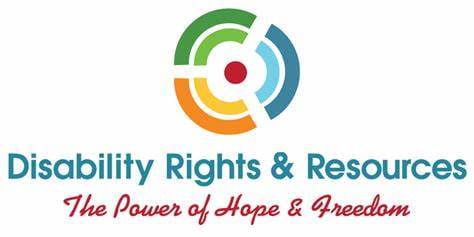

Published by